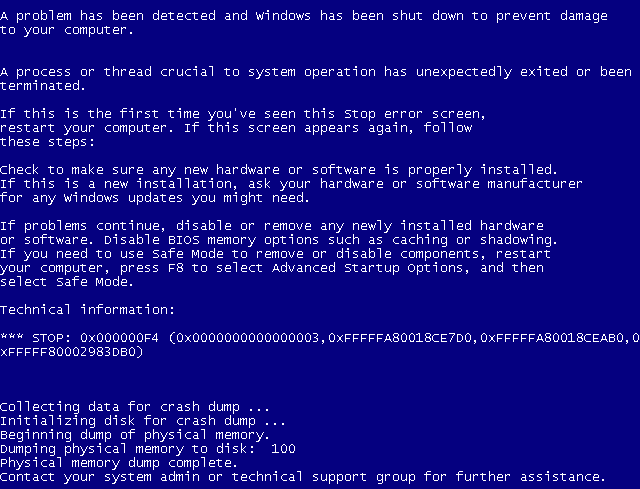Life Before Software (and my first BSOD)

I didn't become a software developer the day I took my first coding lesson. That part came later. If I really trace things back, I have to go to 6th grade — the day I got my very first personal computer.
Before that, I had always shared a computer with my family, which meant limited time, constant negotiations with my brother, and never having my own digital space. But that year, during a Black Friday sale at the now-defunct J&R computer store, my mom decided to buy us each our own computers. A gray HP desktop caught my eye — not because I loved it, but because it had a sale sign in front of it. I remember really wanting a different one, but I didn't want my mom to spend too much. I've always been a bit too empathetic for my own good, and this felt like one of those moments where you choose the practical option for someone else's sake.
So I lugged that boxy machine home — proud, excited, and maybe a little naive.
A few days later, I met the Blue Screen of Death for the very first time. It felt like a punishment I didn't understand. There were all these white words on a blue screen, but none of them made any sense to me. I didn't know what I had done wrong. I hadn't installed anything strange, hadn't touched anything “important.” I just... used it. My instincts told me to press the power button and turn it off and then turn it back on. And it worked — until it didn't. After a few more blue screens and a growing sense of defeat, I packed up the massive tower and hauled it back to the store.
The salesman told me and my mom that sale items couldn't be refunded, only exchanged. So I took home the same model, again. Weeks later, it started giving me problems too. But by then, I had learned something — if I restarted it, it would work. And so, I restarted. Again and again.
Looking back, it feels poetic in a weird way. That was my first experience with bad software — or maybe just bad hardware — and it taught me something deeper than I realized at the time. I learned to stay curious even when things didn't make sense. I learned that technology wasn't always fair or predictable. And I learned that sometimes, you just have to try again — turn it off and on — until it works.
Years later, when I actually started learning how to code, those early lessons came back to me. The feeling of not understanding, the impulse to keep trying, the quiet drive to figure out how and why things broke. Maybe that's why software didn't intimidate me the way it might have. I had already spent years building a relationship with broken systems.
Before software, I was just a kid trying to make sense of error messages. Now, I'm someone who builds systems that (hopefully) don't crash. But the curiosity — and the empathy — has always been there.